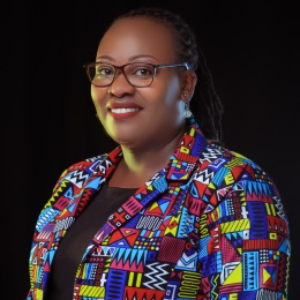Title : Personalised nutrition plans and recreational activities in helping patients with neurological disorders in care homes/assisted living facilities
Abstract:
A natural nutrition plan for elderly people with neurological disorders should focus on whole, nutrient-dense foods that support brain health and address specific needs. unprocessed foods that promote overall health and address age-related concerns. Remember to consult with a healthcare professional or registered dietitian to create a personalized nutrition plan in case you are doing it on an individual basis.
A natural nutrition plan for people with neurological disorders:
- Omega-3 rich foods: Fatty fish, nuts, and seeds to reduce inflammation.
- Antioxidant-rich foods: Berries, leafy greens, and other fruits and vegetables to combat oxidative stress.
- Magnesium and potassium-rich foods: Dark leafy greens, nuts, and whole grains to support neuronal function.
- Vitamin B-rich foods: Whole grains, lean meats, and fish to support neurotransmitter production.
- Probiotic-rich foods: Fermented foods like yogurt, kefir, and kimchi to support gut-brain health.
- Healthy fats: Avocados, nuts, and seeds to support brain function.
- Stay hydrated: Adequate water intake to maintain cognitive function Here are some guidelines:
- Emphasize whole grains, fruits, vegetables, lean proteins, and healthy fats.
- Include calcium and vitamin D-rich foods for bone health.
- Choose omega-3 fatty acid-rich foods for heart health.
- Select fibre-rich foods for digestive health.
- Limit processed, sugary, and high-sodium foods.
- Stay hydrated with plenty of water.
- Consider supplements like vitamin B12, vitamin D, and probiotics.
Some beneficial foods for elderly people include:
- Leafy greens (spinach, kale)
- Berries (blueberries, strawberries)
- Nuts and seeds (almonds, chia seeds)
- Fatty fish (salmon, tuna)
- Sweet potatoes
- Legumes (lentils, chickpeas)
- Whole grains (brown rice, quinoa)
- Avocados
- Fermented foods (yogurt, kimchi)
- Herbal teas (green tea, peppermint)
Specific considerations for common neurological disorders:
- Alzheimer's disease: Emphasize omega-3s, antioxidants, and B vitamins.
- Parkinson's disease: Focus on magnesium, potassium, and vitamin B6.
- Multiple sclerosis: Include omega-3s, vitamin D, and probiotics.
- Epilepsy: Consider a ketogenic diet, rich in healthy fats and low in carbohydrates.
- Stroke and cerebral vasculature disorders: Emphasize omega-3s, antioxidants, and potassium-rich foods.
Remember to consult with a healthcare professional or registered dietitian to create a personalized nutrition plan.
Recreational activities can greatly benefit patients with neurological disorders, promoting physical, emotional, and cognitive well-being. Here are some suitable activities:
- Art therapy (painting, drawing, colouring)
- Music therapy (listening, singing, playing instruments)
- Gardening
- Yoga or tai chi (modified for accessibility)
- Walking or wheelchair-friendly exercise
- Board games and puzzles (cognitive stimulation)
- Reading (adapted formats like audiobooks or large print)
- Creative writing or journaling
- Photography
- Cooking or baking (simple recipes)
- Animal-assisted therapy (interacting with pets)
- Virtual reality experiences
- Sensory stimulation (e.g., aromatherapy, texture exploration)
- Group activities (socialization, support groups)
- Adaptive sports (e.g., wheelchair basketball, adaptive tennis)
Considerations:
- Consult healthcare professionals before starting new activities.
- Tailor activities to individual abilities and interests.
- Ensure accessibility and safety.
- Provide necessary assistance and support.
- Encourage social interaction and community engagement.
- Monitor progress and adjust activities as needed.
- Incorporate cognitive stimulation and memory exercises.
- Offer relaxation techniques (e.g., meditation, deep breathing).
Benefits:
- Improved mood and reduced stress
- Enhanced cognitive function
- Increased mobility and flexibility
- Boosted self-esteem and confidence
- Socialization and community connection
- Emotional expression and creativity
- Pain management and relaxation
- Overall quality of life improvement
Remember to prioritize patient comfort, safety, and enjoyment when selecting recreational activities.




